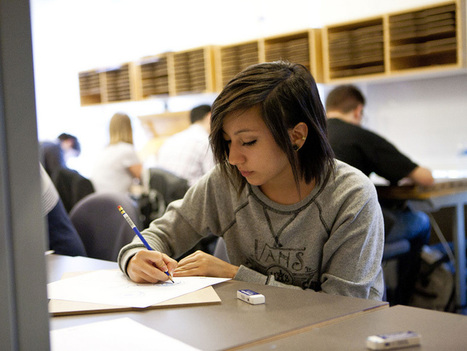 Your new post is loading...
 Your new post is loading...
“Redistribution” is political poison, which is strange because according to public opinion polling, lots of people are for it.
63% think that upper income people pay too little in taxes[3]
59% say that wealth should be “more evenly distributed among a larger percentage of the people.”
52% say that this more even distribution should be explicitly achieved by establishing “heavy taxes on the rich.”
Ah, but there’s the rub, who’s rich?
Is it the top 1% whose after tax income has increased by 192% since 1979?
Or is it the top 5% who, when indexed to 1973, have seen incomes rise by 70%, while the bottom 20% are essentially flat?
Is it the top 10% who hold 76% of the country’s wealth?
Or, as Brookings Institution senior fellow Richard V. Reeves argues, is it the top 20%? “This favored fifth at the top of the income distribution, with an average annual household income of $200,000,[4] has been separating from the 80 percent below. Collectively, this top fifth has seen a $4 trillion-plus increase in pretax income since 1979, compared to just over $3 trillion for everyone else. Some of those gains went to the top 1 percent. But most went to the 19 percent just beneath them.”
Via iPamba
|
Education is a system; teaching is an action; learning is a process.
As such, education requires a self-aware and self-correcting set of processes that respond to changes circumstances at every level—culture, literacy, curriculum, assessment, instruction, and so on. When bullying becomes a pastime. When kids can access libraries on their smartphones.
When technology affords access to digital communities that can make all the difference. Where are education’s correcting factors? New standards and standardized test forms every decade? Pay-for-test-performance?
Education is in the habit of changing for political and imagery and spectacle, when it should inherently bleach politics altogether.
The result of any system of education should be full transparency so that it offers itself up selflessly to the people and communities it serves.
And teaching? It requires human beings who can model the kind of humility and struggle and self-delete that is so often not sustainable for the teachers themselves.
As for the students, it requires an awkward and ironic vulnerability on the part of the learner that makes railing against privilege and imbalance all but impossible until they get to college and see what comes at the end of the conveyor belt and get disillusioned fast.
But those are just the pieces. As a whole, more than anything else, education requires citizenship and democracy—people contributing to and caring for the communities they depend on, and then being accountable for the health of those communities through a shared struggle and affection for one another.
Via iPamba
|



 Your new post is loading...
Your new post is loading...








